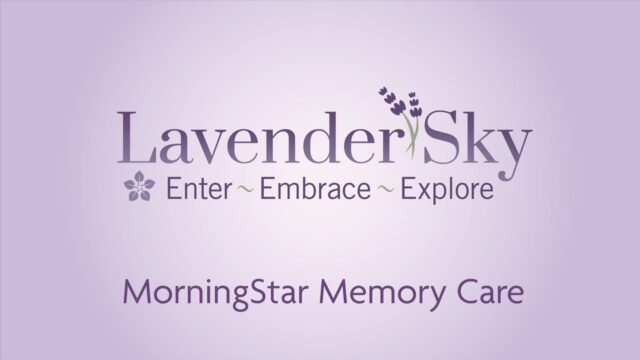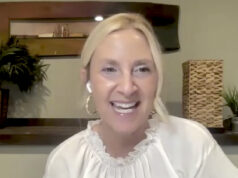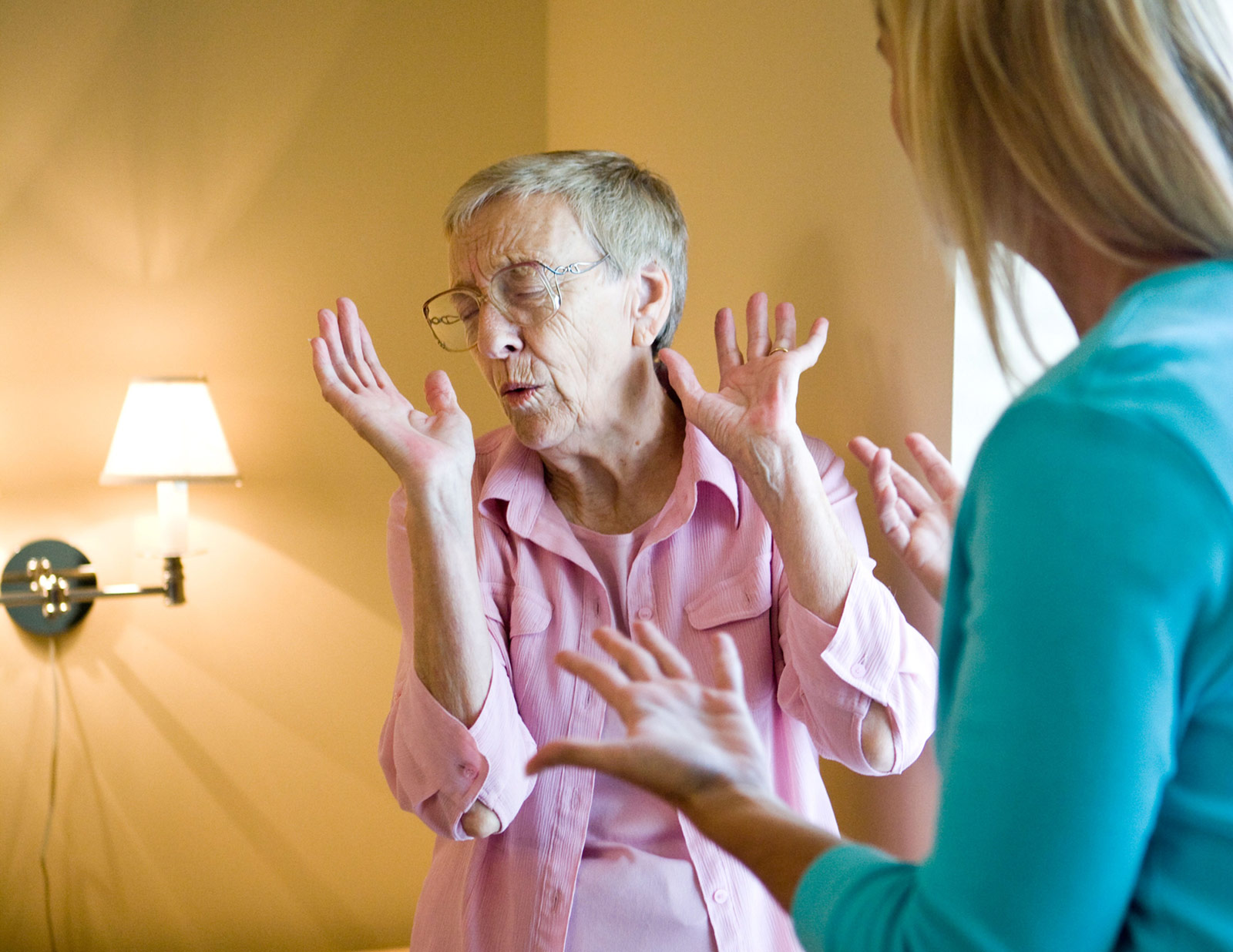Welcome back, everyone, to Answers for Elders Radio Network. And we’re here again with the MorningStar Lavender Sky – I guess I should say the nucleus, the amazing individuals that are in leadership of an incredible organization called MorningStar Senior Living. And we have with us Ignacio Lopez, Julie Wilkins, and the vice president of the Lavender Sky program, Rebecca Martin, with us of MorningStar. And Rebecca, you and I just spent the last segment talking a little bit about your program and things like that, but I really want to finish out with all of you as a collective and talk about where are we going in the future, what’s you know? How are you There’s all kinds of breakthroughs that I keep hearing about because obviously I’m kind of in the knowledge of a lot of things happening, But do you guys have to be much more so in all kinds of therapies, different kinds of things. Um, So who would like to I guess Rebecca, I’m going to start with you, and would you kind of share with us a little bit about like how do you plan for the future.
– Mm hmm, yeah. So we’re constantly reevaluating our current programs, just looking at our new clientele, and unfortunately, we do see an increase in earlier onset Alzheimer’s and dementia. So how does programming change for somebody that is 55 or 60 versus our our previous clientele that was in the older ages of 80 and 90. So we’ve looked at a lot of different holistic modalities and the benefits in implementing them into our program offerings, and just see so much success from that. So that’s I think really where we’re going is furthering the development of our activity offerings.
– Yeah. And that’s so important because obviously, when you’re talking about early onset, it’s tragic. I just had a classmate of mine, a year older than me, but he just he was diagnosed with early onset and like three years later he was gone. He had passed away, and it was just it was heartbreaking to see that kind of decline so quickly and and that that obviously is something that people are working on quite a bit, but it’s also kind of the one of the hard parts. So, Julie, I’m gonna go to you. You work with a lot of different types of aspects of this whole concept and when we talked originally, so Julie, what you know, how do you deal with some of the future things that you’re doing and as well as integrating therapies?
– Well, as you mentioned, it is a time where there’s just a ton of research being done. Things come out every month. We are constantly updating our program. One of the more interesting things of late has been the connection between music and improved memory, improved depression, agitation, and the areas that are stimulated in the brain by music. But the other piece of that is the individualized component. We strongly associate music of certain types with emotions and experiences, so we always want to make sure that we’re pairing, you know, something that has a positive impact on the individual, or a type of music that they’ve always enjoyed, or something that has always made them feel uplifted or calmed in something.
– Yeah. And and like you said, not everybody likes music, not everybody likes art, So it’s it’s a really individualized program. And so Ignacio, you’re a certified dementia practitioner, you’ve worked with dementia for a long time, and obviously you’re overseeing the West Valley program. You’re gonna be implementing some new things in your community, are you not?
– Absolutely. There’s a lot of exciting things coming down from our home office, like Rebecca was mentioning, and we are going to embrace whatever creativity we can to reach our residents as individuals. We want them to have a fruitful life. We wanted to have a satisfying life. You know, if a resident wants to lead an activity, guess what, a resident is going to lead an activity. We want them to feel included. We wanted to feel like they still matter, because a lot of them feel like, you know, a lot of my family left me here, nobody comes to visit this and that. So we want them to feel empowered to say I still have value, this is me. And if they can run an activity. If they like to run a gardening activity, we’re gonna have a Emma’s garden. And then we can have some little raised flower beds where residents can do their, you know, get their hands in the dirt. That’s what we’re going to do. We’re going to take all the information and embrace everyone who will make our residents lives better.
– Well, and I think Ignacio, what you’re saying is it brings back a real principle, and that is giving everyone a sense of purpose, a sense there’s a reason why you’re here, You’re important, and guess what, you have a purpose here. And I think that’s the thing that you guys have really created a structure around letting people find that place, you know, and Rebecca, I’m sure that had to be part of the strategies around creating a lot of these programs, were they not?
– Yes. Absolutely, And we’re looking at things to include like cognitive stimulation therapy as well, and like you had touched on earlier, just those breakthroughs, the new things that are always up and coming. We want to look at those to layer into our Lavender Sky program as well. So what we know about cognitive stimulation therapy is that it can really help people in the earlier stages of dementia to maintain their independence, longer, have better word-finding skills, better emotional control, and really just overall better quality of life. So it’s a therapy that’s been around for several years, but we’re seeing more and more studies coming out that really show excellent success in even reducing the need for dementia medications. And if we can do that just by engaging our residence in these creative ways, in additional holistic modalities and therapies, then that’s really our goal, is quality of life, 100 percent. I think every one of us on this UM, on this call today can agree that that’s that’s our goal.
– Yeah, yeah, And I think that that when there’s a goal and there’s a vision to go move forward, it’s it’s easier to get everyone aligned. And obviously the fact that you put all your staff through the training that you do UM it helps them recognize, but it’s also encourages their creativity. I’m assuming and in reaching someone saying hey, you know, I’ve learned that Joe tends to like, you know, X Y Z or something like that. Are you finding that with your staff?
– Absolutely. And just like Ignacio has gone through that certified Dementia Practitioner course, that is something we have all of our leadership team members, both clinical and care coordinators go through that certification process as well. Just to have that additional layer of no knowledge on top of the Lavender Sky training, and that really does allow for our families to establish that trust with our team, you know, knowing we have that foundation of education and understanding around all things dimension Alzheimer’s.
– Yeah. Yeah, And and certainly just to have that foundation of you know, of synergy of people working together and having that kind of process together, of being able to discuss openly and discussed with the families. You know, this is what I’ve learned because they have that foundational training and and as updates happen, I’m sure that there’s intermingled type training programs that you have your stuff participating in as well. Is that correct?
– Absolutely. Yeah, We’re always providing new resources to our staff. We have thousands of ongoing trainings called brain boost that our staff have access to if they ever run into a dementia-related issue or something that they’ve ever experienced, they can they can research that independently on their own. So we’ve created a lot of resources for them, as well as our families. We have a family education series called the Unforgettable Series as well, just knowing that we really need to walk alongside them throughout this journey to to better understand their loved one. So, you know, we touched on that earlier, but it’s a it’s a separate version of the Lavender Sky training that is just geared towards family education.
– Yeah. Yeah, well, and I think it’s it’s important that we brought it up in the beginning, but I think it’s also really important that we close with that. I know that there’s families out there every single day that are struggling with how to do right by their loved one, and they’re dealing with their own sense of guilt, and how can I deal with the fact that I can’t deal with my husband anymore because he’s got dementia, and yet I feel guilty and as his wife that I can’t handle it, And and that goes on every single day and I think one of the key things is is realizing that people are not alone in this process, that there’s a whole group of people that you know, people can pick up the phone, they can call, and they can talk to you a little bit, um, you know, and you encourage those types of calls, do you not, Ignacio? I’m saying right now, they may not be ready to move into your community yet, but you can certainly help them recognize when that time could be.
– Absolutely, everyone that comes into our confirmation center, or anyone who reaches out, that’s one thing I always tell him. Look, no matter what question it is, what time of day it is, if you have a question about dementia, about how to deal with something, please give me a call. Here’s my email, here’s my phone number. Even if you decide to go to another community, but you have another question, call me because I will give you an answer.
– Yeah, And that’s the key, and that’s the really important thing. So I’m gonna call. I’m gonna ask Rebecca to do our close, and I’m going to ask you one thing. I’m gonna ask you a really profound question. But we’re all searching. We all want — A lot of us have participated in the Alzheimer’s Walks and things like that. Do you believe and and that we’re going to eventually find a cure?
– Absolutely. I think in our lifetime we will see a cure. And I can’t wait to celebrate that day. And I think we’re getting closer and closer all the time. The Alzheimer’s Association does wonders to raise funds for research, um as do other organizations, and I think we are getting closer. And that will be a great thing to come together and celebrate some day.
– Yeah. Well, and I’ll never forget walking in the Alzheimer’s Walk as I have done, in previous years, and all the flowers that represent different things: their connection to the disease. And you know I had the family flower, my mom had vascular dementia, but she did have a dementia. But there’s people that walk for different reasons, whether they were a friend, a family member, if you’ve lost someone to the disease, things like that. But there’s something powerful about connection, and there’s something powerful about people coming together and you know, brainstorming how they can serve those and I think one of the things that you guys have done so very well is really come together with a program that is absolutely supporting not only your residents and the people that live with you, but also to support the family. So thank you from the bottom of my heart for all the work that you do. I know it’s not easy and all of our families know that, so thank you again.
– And Suzanne, just to tag onto that really quick, I know that image of all of those beautiful flowers raised for the different reasons that we walk is a really overwhelmingly emotional scene to be part of. But last year was the first year that there was a new color. I don’t know if you if you all noticed, but there was one flower that was white and it is the symbol, the symbol of hope for the very first survivors.
– I love that. I love that, and I do remember that, now that you say it, so in the meantime, for those of you that are interested in MorningStar Senior Living, Rebecca, can you give us the website information for those that are interested in MorningStar.
– Sure, it’s https://www.morningstarseniorliving.com/ and you can take a virtual tour of all of our communities. You can see West Valley for yourself and all of our other 31 communities in addition to West Valley.
– That’s awesome. And to each and every one of you listening today, just know that we are here on your team. We hope that you’ll take advantage. For those of you that know someone or have someone that maybe is close to you that is suffering from Alzheimer’s dementia, check out MorningStar. And next week, we’re moving into the holidays, and Answers for Elders talks about Culture, Connection and Celebration. Until next week, always be good to each other.













